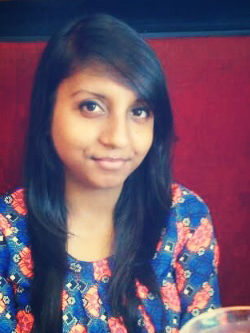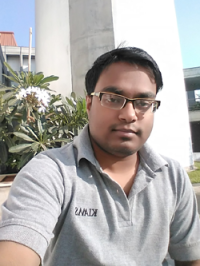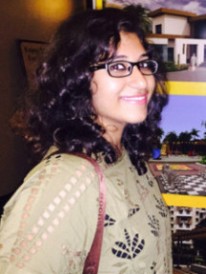 As a BBA graduate, Megha Dey could have opted for an MBA to further her career prospects. But she chose to do her PGDM because she believed that the curriculum would make her industry ready. After spending two years at KIAMS, an institute she had heard a lot about, she agrees that she made the best decision. She has now been placed in a facility management role with Quess Corp Avon, which is a subsidy of the global giant IKEA. Here she shares the journey of her transformation from a hopeful student to a confident management professional.
As a BBA graduate, Megha Dey could have opted for an MBA to further her career prospects. But she chose to do her PGDM because she believed that the curriculum would make her industry ready. After spending two years at KIAMS, an institute she had heard a lot about, she agrees that she made the best decision. She has now been placed in a facility management role with Quess Corp Avon, which is a subsidy of the global giant IKEA. Here she shares the journey of her transformation from a hopeful student to a confident management professional.
When asked to put her journey with KIAMS in words, Megha counts many positives. According to her things that seemed difficult and intense when doing them were also a huge learning experience in hindsight. “The rigorous presentations were definitely tough but they were totally worth it at the end of the day. I have learned so much about team effort besides gaining theoretical and practical knowledge. While the job I have bagged is the perfect entry in the corporate world for me, the knowledge I have gained during my time here will last me a lifetime,” she says.
In her new role as a professional with the company Megha will be responsible for meeting clients and discussing various facilities offered. She will also have to strive to boost the sales of the company. She is keen to prove her mettle by delivering on these tasks, just like she managed to impress during the placement interview. On what went right in the interview, she says “I had gathered fair bit of knowledge about the company, which is why I could talk about different scenarios and offer them the best solutions. I also relied on my SIP experience with Bank of Baroda (Kolkata) to come up with relevant answers during the interview.”
Megha mentions the IRP sessions at KIAMS as the main preparation for placement because not only did they improve her communication skills but they also helped her answer situational questions, which were the crux of her interview. Above all her confidence gained during the PGDM years showed clearly. That’s her advice to her juniors at the institute as well. “Be confident and everything will fall into place. Pay attention to classroom learning and projects because that will prepare you well. But also make the most of your time on the campus and with friends because it won’t come back,” she ends on an emotional note.

 Abhijit Das, student of PGDM Batch 17 at
Abhijit Das, student of PGDM Batch 17 at  completing her graduation in Oman, where her parents both work as corporate professionals, Karen Saldanha decided to come to India to pursue higher education. She was keen to pursue a career in management and believes that
completing her graduation in Oman, where her parents both work as corporate professionals, Karen Saldanha decided to come to India to pursue higher education. She was keen to pursue a career in management and believes that 





